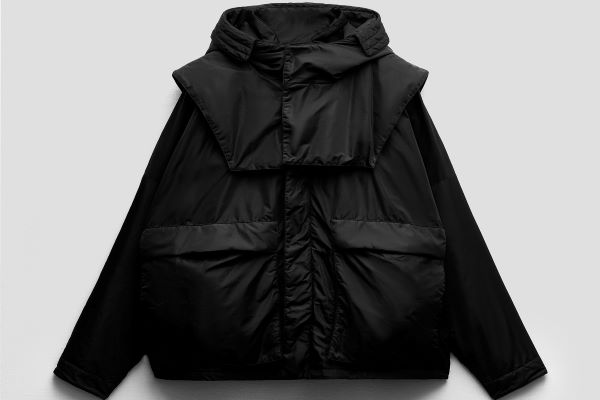The technology behind loopamid enables recycling of polyamide 6 discarded textiles into new, virgin-quality synthetic fibers and materials

BASF and Inditex jointly announce a breakthrough in their efforts for boosting recyclability in the textile industry. With the launch of loopamid, a polyamide 6 (PA6, also known as nylon 6) made from 100 percent textile waste, BASF is providing the first circular solution for nylon apparel made entirely from textile waste.
Zara has turned the material into a jacket made from 100 percent loopamid, available worldwide as of today. Following a “design for recycling” approach, all parts, including fabrics, buttons, filling, hook and loop and zipper are made from loopamid.
With loopamid, BASF has developed an innovative solution to improve circularity in the fashion industry and recycle polyamide 6 textile waste. Due to its capability to tolerate all fabric mixtures like PA6 and elastane, the cutting-edge technology behind loopamid allows textile-to-textile recycling of post-industrial and post-consumer textile waste. The fibers and materials can be recycled over multiple cycles. At the same time, the material characteristics are identical to those of conventional virgin polyamide.
“BASF has reached an important milestone towards circularity in the fashion industry and pioneered an approach to close the loop for nylon textiles,” said Dr. Ramkumar Dhruva, President of BASF’s Monomers division.
“Our loopamid has the potential to revolutionize the PA6 market for the better. We are in the process of scaling up our technology to serve our customers with commercial quantities. The capsule jacket together with Inditex is the proof that circularity is possible, and we are eager to further drive the sustainable transformation of the textile industry.”
Javier Losada, Inditex’s Chief Sustainability Officer, added, “Driving innovation is key to advancing towards a more responsible industry. This collaboration is a great example of how, by collaborating all together, we can use the new technology to transform textile waste into a new resource. This project is also a first step to move towards a circular solution, as the industry still needs to boost new collecting and recycling capacities in order to close the loop and scale recycling for post-consumer waste.”
The collaboration of BASF and Inditex is based on a joint journey – both companies are following ambitious sustainability goals. By the year 2030, BASF aims to double its sales generated with solutions for the circular economy to €17 billion. To achieve this, the company is concentrating on three action areas: circular feedstocks, new material cycles and new business models.
Inditex aims to have 100% of its textile products to be made exclusively from materials with a smaller environmental footprint by 2030. As part of this commitment, the Group expects to have 25% of the textile fibers made from next-generation materials that do not yet exist at an industrial scale, 40% of conventional recycled materials and 25% of organic and regenerative fibres.
Subscribe to our newsletter & stay updated.